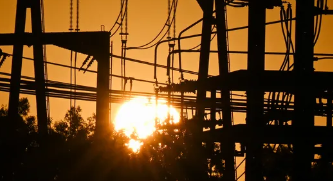A utility company switched thousands of customers out of their smart thermostats in Colorado
A utility company switched thousands of customers out of their smart thermostats in Colorado
Last week thousands of Colorado residents shut themselves down with their smart thermostats as temperatures plummeted in an effort to keep electricity demand off the grid.
As Denver7 News reports, about 22,000 Xcel customers lost control of their smart thermostats for hours on August 30. This caused a backlash on social media as some people said that the temperature inside their homes reached 88 degrees Fahrenheit. Outside temperatures climbed into the 90s in parts of Colorado that day, with much of the western US battling extreme heat.
All customers affected had enrolled in an energy-saving program called AC Rewards, which aimed to reduce stress on the power grid during heatwaves. Xcel can accommodate those customers' smart thermostats when demand becomes so high that there may not be enough supply to meet it. Xcel offers a one-time $100 credit on electricity bills upon signing up and $25 per year for participation.
When the utility adjusts the customer's thermostat, the customer usually has the option to opt out. But, "on rare occasions, system emergencies can cause a control event that cannot be overridden," the company says on its website.
According to Denver7, last week was the first time Xcel barred customers from overriding their adjustments in the six years since the program began. Accel vice president Emmett Romain told Denver 7 that high temperatures, rising power demand for air conditioners and unexpected outages contributed to last week's energy emergency. Xcel did not immediately respond to press inquiries from The Verge.
Extreme heat is stressing the power grid across much of the western US during the long summer that began last week and is expected to go well this week. California's grid operator is urging residents to save energy over the next several days to avoid blackouts.
Due to more extreme weather, Americans are facing increasing power cuts than ever before. 2020 was a record year for power cuts in the US. The summer heat in Texas last year triggered a similar backlash from residents when utilities set customers' smart thermostats to higher temperatures to limit electricity demand.
Such programs are part of a strategy called demand response, which is supposed to help power grids become more resilient to extreme weather events that become more frequent and severe as global temperatures rise. Huh. Energy providers are always managing a precarious balance between supply and demand which can lead to power shortages at the peak of demand. Demand response can smooth out peaks that typically rise when heatwaves drive up electricity demand for air conditioning. So while some customers may see their thermostat set to a higher temperature than expected, it will help to keep electricity running for their homes and their neighbors.
There is risk with that strategy, however, if smart thermostats keep homes at dangerously high temperatures. Prolonged exposure to high temperatures – especially at night when people are sleeping at home – can lead to heat-related illness and even death. In the US, heatwaves kill more people than any other meteorological disaster.







No comments